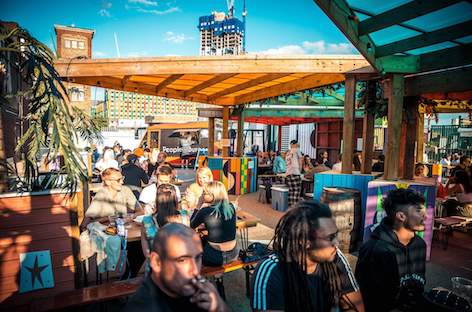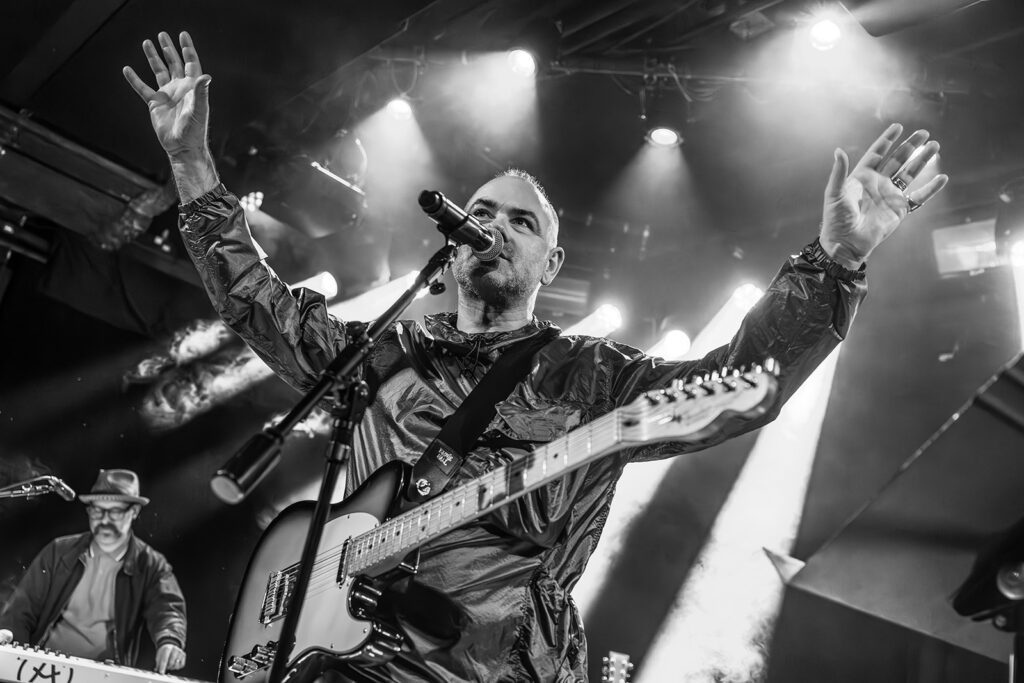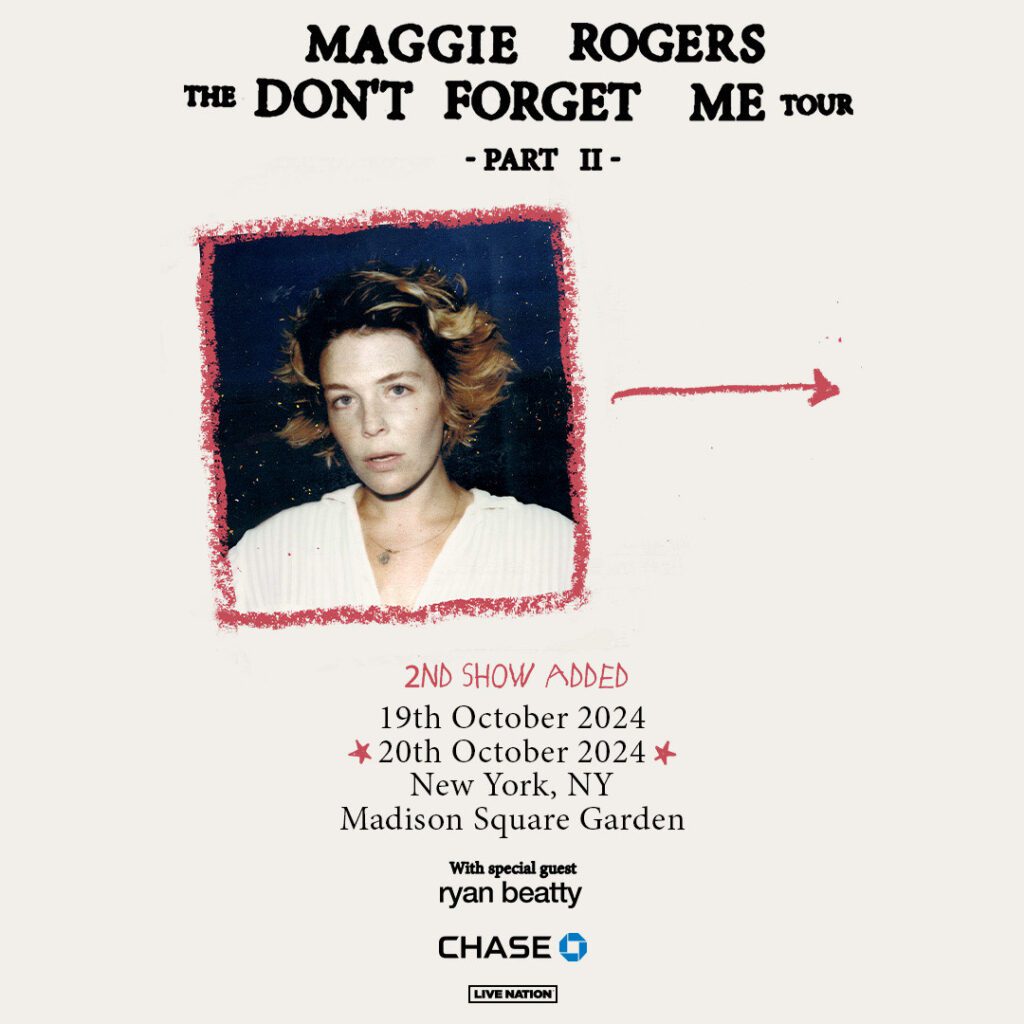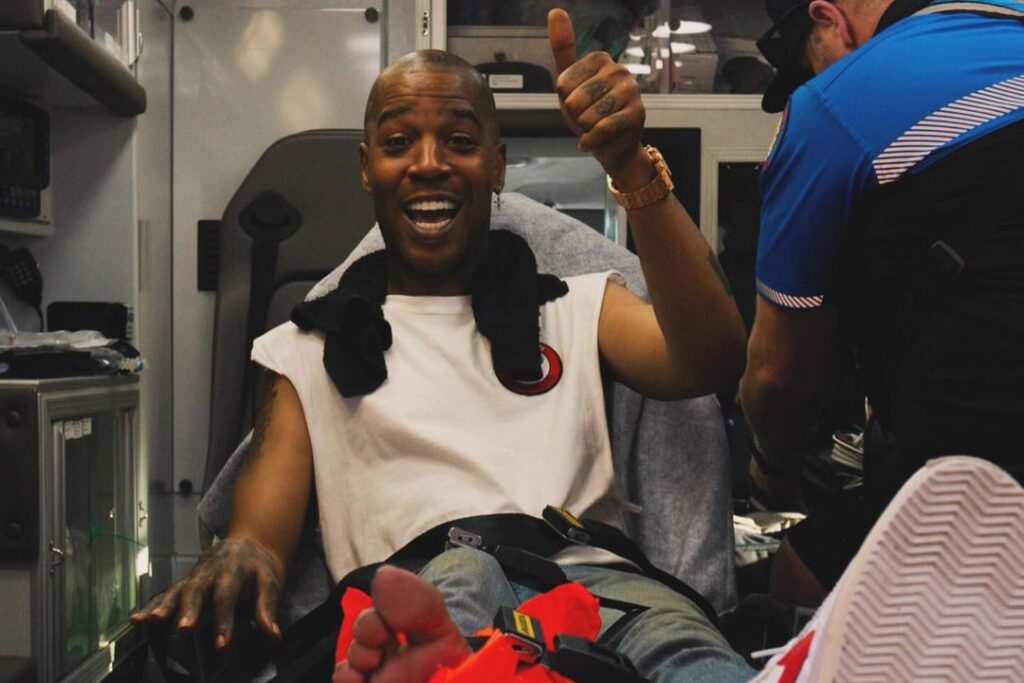London venues adapt in attempt to survive pandemic
Unlike pubs, bars and restaurants, venues in London aren’t allowed to open under current UK law. As a result, owners are trying new formats to generate income, whether that’s making the most of available outside space (Covid-19 transmission in socially distanced outdoor spaces is significantly lower than indoors) or following strict guidelines indoors.
Tottenham spot The Cause has built a new, seated, outdoor space called Costa Del Tottenham, hosting DJs and artists Wednesdays through Sundays. In an interview with the Guardian, cofounder Stuart Glen said, “We built a whole area not knowing quite what was going on. We adapted and took on a whole new team. We went from being a high-volume nightclub to suddenly doing table service.” The Cause’s event listings show events planned for the terrace through November 28th.
Venue MOT Unit 18 in South Bermondsey has also gone from DIY raves to outdoor table service, as Riri Hylton described in their August review of a Big Dyke Energy event. “Long garden tables ran the length of the cordoned outdoor area where early ravers were already seated,” Hylton observed. “To meet social distancing measures, the night, titled ‘F**K 2020,’ was operating at 50 percent capacity.”
Earlier in the season, Brixton Jamm renovated its outdoor spaces in order to open as a DJ terrace bar as soon as pubs, bars and restaurants were permitted to reopen on July 4th.
Other venues have gone for the listening bar setup in and following government guidelines for indoor spaces. Shoreditch’s Village Underground has recently reopened as a seated venue under the name VU Bar, with limited capacity from Thursdays through Saturdays. (Over the summer, it opened as a cycle park to generate income in the interim.) Iconic Camden venue The Jazz Cafe is set to reopen this weekend, on September 19th, also with a seated and spaced-out new layout.
“We’re still a long way off where we need to be, and it will be very difficult to operate financially but we owe it to all the people who make the live industry tick to give this a go,” The Jazz Cafe’s head booker, Ruari Frew, said. “Our world is largely made up of freelancers, many of whom fell through the gaps of any government support. It’s crucial that we get as many people as possible working again in a safe environment. Although it’s not sustainable in the medium or long-term, for now it’s exciting to have musicians on stage in front of an audience, engineers in booths and bar staff serving drinks again.”
In July, the UK government announced a £1.57 billion pandemic relief package for the arts and culture sectors. Because it wasn’t immediately clear that nightclubs, festivals and electronic music venues would be covered, the nightlife community rallied with the #LetUsDance campaign. Today, the UK High Court ruled that insurance companies must pay out business interruption claims related to the pandemic, which the Night Time Industries Association (NTIA) says is a win for nightlife businesses.
Last month, NTIA published a report outlining a proposed path for “Covid-secure” reopenings of nightclubs and other venues in the UK. However, recent data shows that reported cases of Covid-19 in the UK are on the rise again. After hovering between around 500 and 1500 new reported cases a day from July through late August, September data shows those daily numbers hitting roughly between 2,400 and 3,500. As of Monday, the UK government imposed tighter restrictions on social gatherings, restricting groups to maximum six people from separate households. The rules apply to private spaces as well as groups in bars, pubs and restaurants.
Photo credit: Costa Del Tottenham





